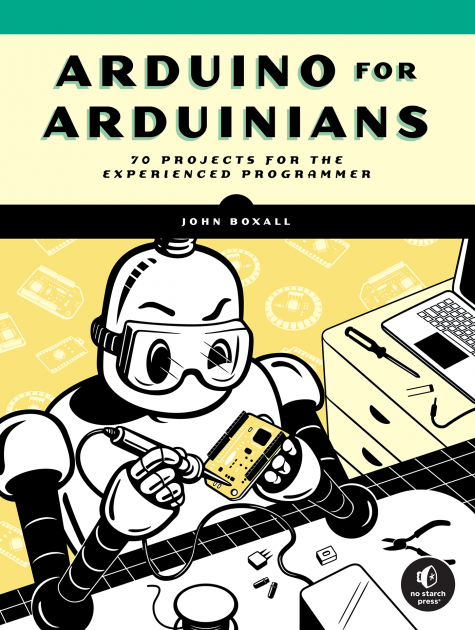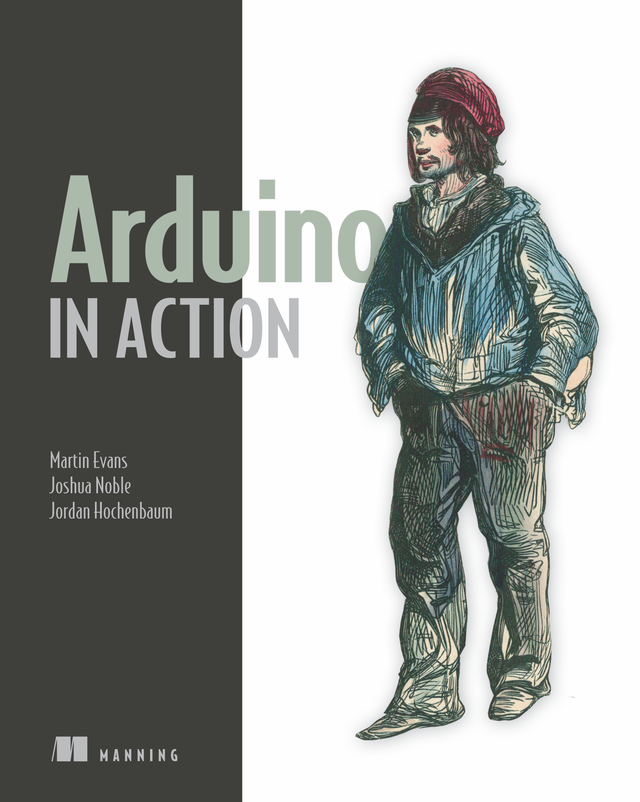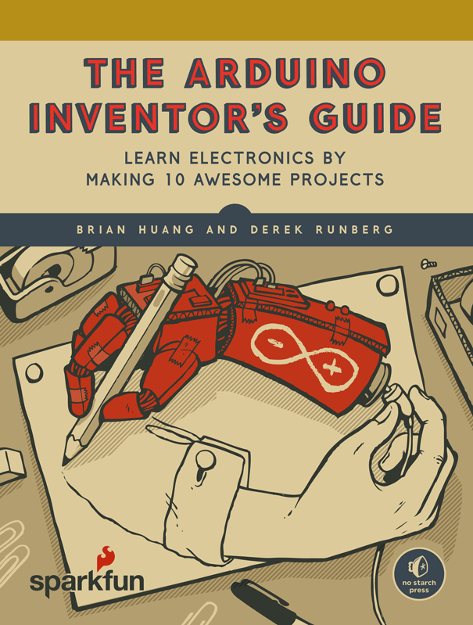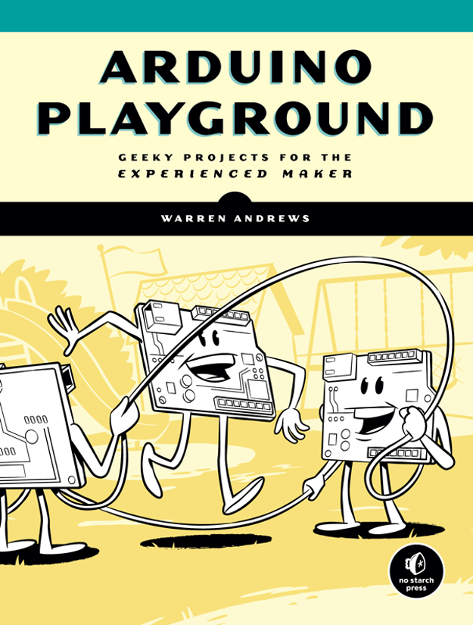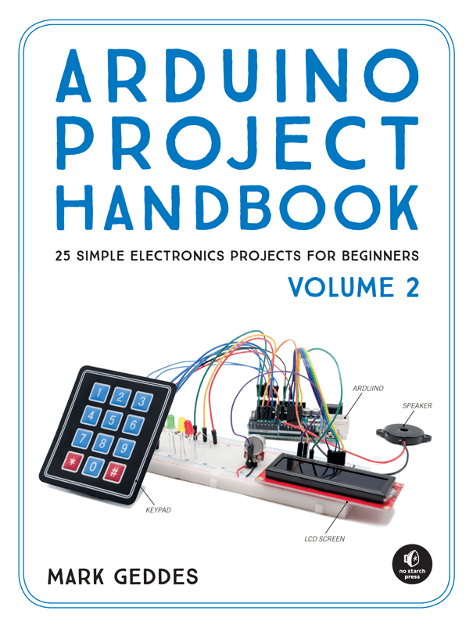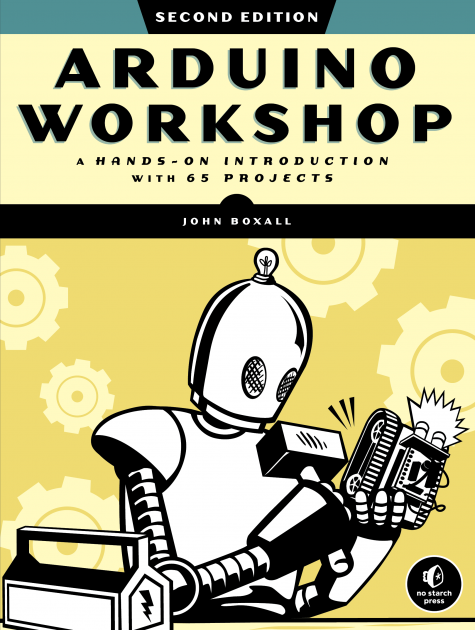For Arduino programmers who’ve mastered the basics, this book is the next step toward becoming an expert Arduinian. You’ll build 70 complex and practical projects with this versatile microcontroller platform and gain advanced skills to design reliable, professional, user-friendly creations.
You’ll remote-control your Arduino via Bluetooth and instant messaging, improve the accuracy of clock projects with internet time servers, and automatically turn your Arduino off when it completes a task. You’ll safely control AC mains power and higher currents and conserve battery with low-power and sleep modes. You’ll also use Charlieplexing to control LED matrix displays, keep your Arduino running with a watchdog timer, communicate over longer wired distances with the RS232 and RS485 buses, and much more.
Along the way, you’ll build fun and useful devices like:
- A camera-enabled circuit to stream videos
- An MP3 player to listen to audio of your choice
- A CAN bus circuit to gather speed and engine data from your car
- A web server to display data captured with an ESP32 board
- A PS/2 keyboard to improve your user interfaces and easily enter and display data Guided by an Arduino master, you’ll harness dozens of sensors, motors, displays, and techniques to bring your own expert inventions to life.
Requirements: Arduino Uno and other Arduino-compatible microcontrollers andUSBasp programmers. Some projects may require other inexpensive parts.
